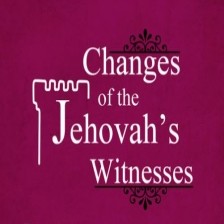“In 1932 I arrived in Córdoba and rented a room in Salta Street. From there I began to work the city; I covered it twice in the two years I was there. Those who manifested interest would order all the new literature, and some visited me at my home, among these, a judge, C. de los Ríos. He would come and spend many hours with me and I would answer his questions, using the Greek Bible as my dictionary since I didn’t have a Greek-Spanish dictionary. I contacted Natalio Dessilani and Armando Menazzi, who were among the first publishers there; Armando Menazzi later became a pioneer. At that time we thought that Armageddon was imminent and so I did all that I could to place literature everywhere. There were those who said, as some still say today, ‘Why place literature when the people don’t pay any attention to it?’ But Brother Rutherford said: ‘You place the literature and leave the results in Jehovah’s hands!’
1972 Yearbook of Jehovah’s Witnesses. 1971. p. 56
Meantime the Society had arranged for an international convention in Lucerne, Switzerland, in August of that year 1936. Ninety persons from Czechoslovakia enjoyed that wonderful occasion. However, the Roman Catholic bishop of Lucerne did his very best to prevent the public from hearing Brother Rutherford’s lecture on “Armageddon.”
1972 Yearbook of Jehovah’s Witnesses. 1971. p. 133
After acknowledging the cruel treatment meted out to Jehovah’s witnesses, Ramón Alberto Ferreras, a political prisoner, in his book “Preso” (Prisoner) on page 140 states: “The Armageddon of final judgment, the excellent things which the righteous hope for in the beyond, the catastrophes that await humanity according to the revelation, and other Biblical or theological themes were heard in the cells of sections A and B while the group of witnesses headed by a man named Montás of San Cristobal, were there.”
1972 Yearbook of Jehovah’s Witnesses. 1971. p. 157-158
At the present time (May 1971) nineteen families with sixty-one members are serving with ten congregations in Nicaragua. For many families with small children it took a great deal of faith to uproot themselves and come several thousand miles to a completely new environment. One Canadian congregation servant consulted with his family, and they decided that there were two principal things they wanted to do before Armageddon: serve where the need was greater and pioneer. Now they are happily doing both. There is still room for many more to enjoy these privileges.
1972 Yearbook of Jehovah’s Witnesses. 1971. p. 194
Within two years the young men had worked their way to her hometown of Chiayi. Upon hearing that one of them was staying at a doctor’s house in a nearby town, she let it be known that she would like to meet him. Soon the two visited her and she recognized Ochiai. An earnest discussion got under way, lasting from 9 a.m. to 4 p.m., with a break for a simple meal. Miyo Idei says, now almost forty years later: “I was astonished at the things I was learning from the Bible. Amazed at their knowledge, I recall asking them two questions: ‘If such big things are to happen, why do the world rulers ignore God’s kingdom?’ and ‘When will Armageddon come?’”
1972 Yearbook of Jehovah’s Witnesses. 1971. p. 214
